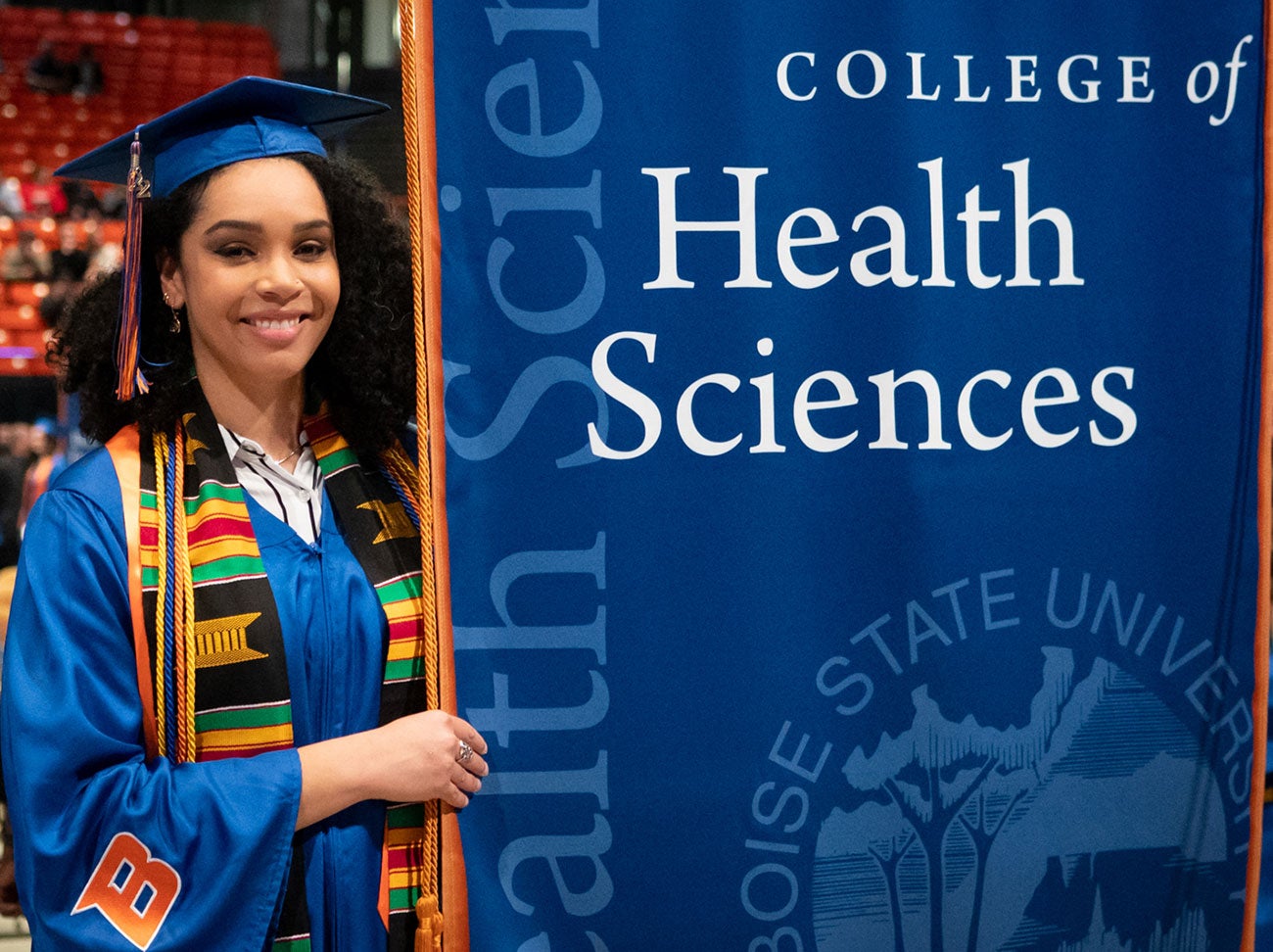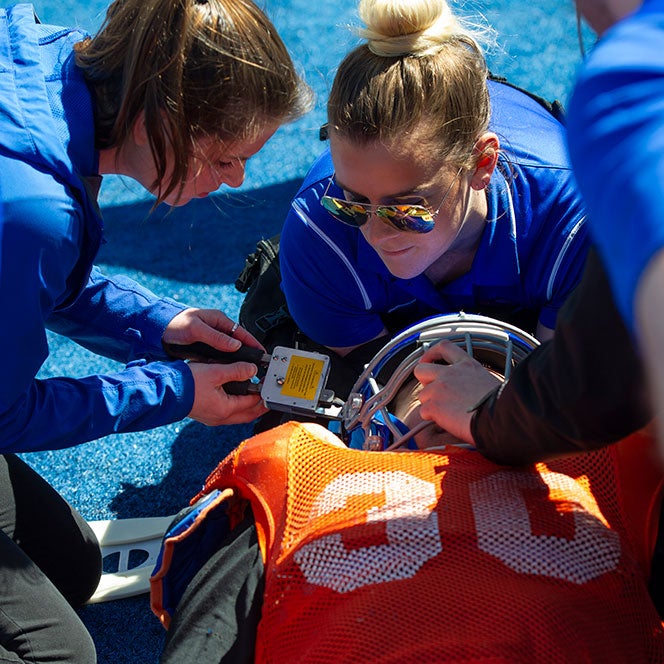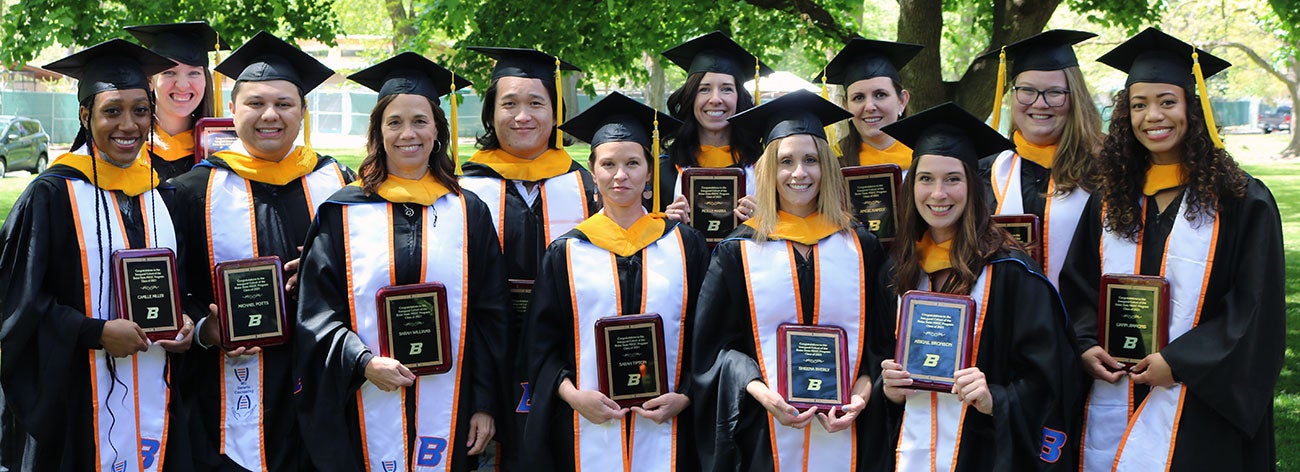
Broncos who enter the workforce with College of Health Sciences diplomas aren’t having many problems landing jobs. In many instances, they’re getting jobs even before receiving their diplomas.
“Employers come right to campus and interview and hire students that are graduating in May,” College of Health Sciences Dean Tim Dunnagan said.
The college’s network of health care leaders paves the way for students and their potential employers to connect on a deep level.
“Students get a chance to meet directly with CEOs,” Dunnagan said. “That leads to jobs.”
College of Health Sciences programs were successful well before the pandemic put health care jobs solidly on the map.

Over the past five years, 100% of the college’s graduated, certified computed tomography and magnetic resonance imaging students found work in their fields. The same is true for two cohorts of master’s degree students in genetic counseling. Boise State nurses are flying off the shelves, not nearly fast enough to keep up with hospitals and health systems’ needs. Bronco athletic trainers, kinesiologists and other trained clinicians and specialists also are in high demand.
Health care’s challenges are Dunnagan’s as well. Like hospitals facing nursing shortages, he’s challenged with shortages of experts to help with curriculum design and accreditation information.
The shared million-dollar question?
“How are we going to develop health care without enough nurses?” Dunnagan said.
Partnerships keep Boise State’s curriculum relevant
How can a college design programs that arm students with cutting-edge knowledge and at the same time shape graduates that meet employers’ needs?
It might follow Dunnagan’s lead.
Dunnagan spent more than a dozen years building a bank of influential, experienced leaders across the health care industry — from hospitals to insurance to health systems, and everything in between. These leaders, known as the board of ambassadors, advise and guide the development of new Boise State programs, the refresh of traditional courses and policies, and the directions in which trends within the industry are headed.
“It just started with a common desire to do well for the people of Idaho, solve problems and create a meaningful workforce,” Dunnagan said.
Turning needs discussed with healthcare partners into the programs that can fulfill those needs has been one of the most gratifying parts of his job as dean, Dunnagan said. He is able to facilitate the design of classes, training and programs that equip the needed employees and leaders for the increasingly complex work of public health in all its dimensions.
“Boise State has done a good job in terms of understanding our patient needs that have evolved over the years where they’ve worked to evolve their program to prepare their students to best meet our needs for our new grads,” said Jordan Whiton, campus program manager for St. Luke’s Health System Talent Acquisition.
These partnerships and the strong leadership of the board of ambassadors keeps the College of Health Sciences in a position to meet the evolving needs of the industry and to set students up for success after graduation.

“We know that we are invaluable to each other from a business standpoint,” Dunnagan said. “Our partners deserve a lot of credit for that. They care what we say, we care what they have to say, and then we put things in place that are meaningful. And when you do that, your graduates are more relevant.”